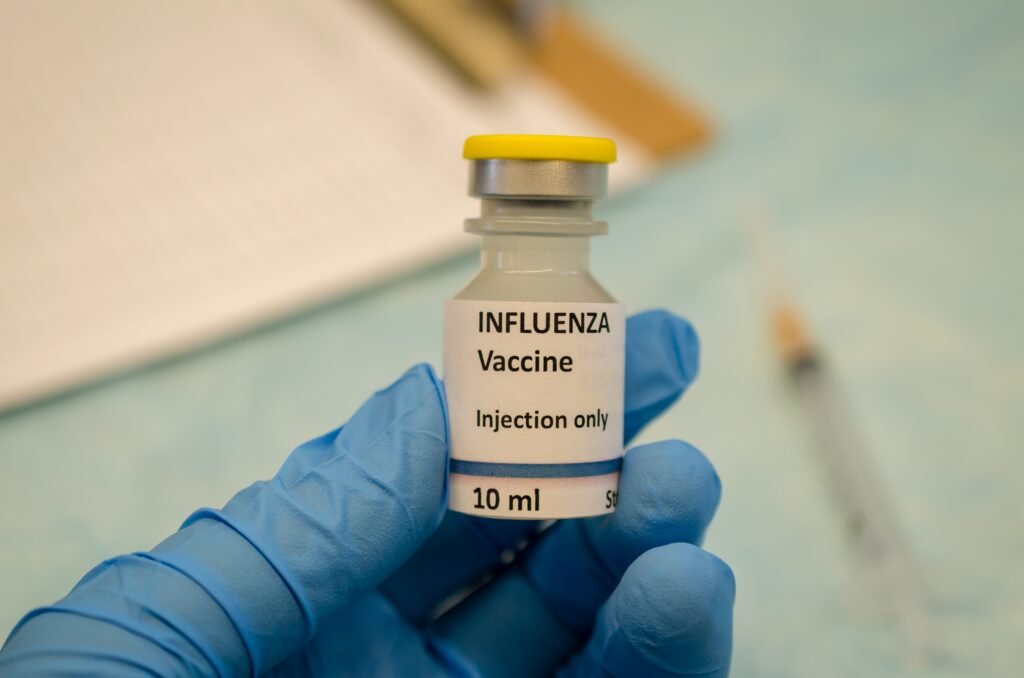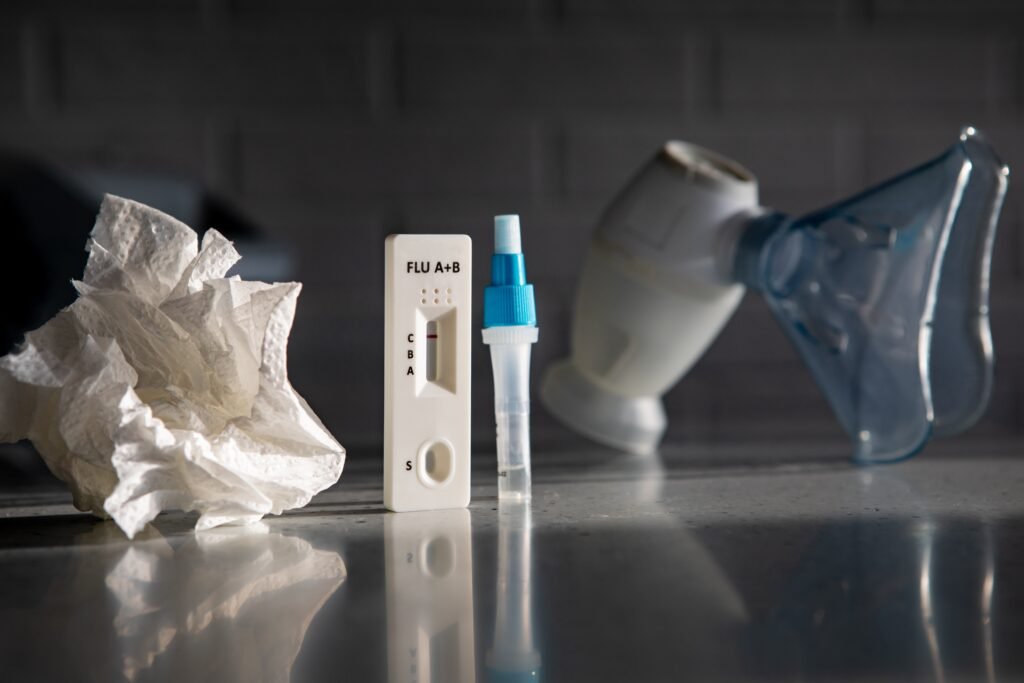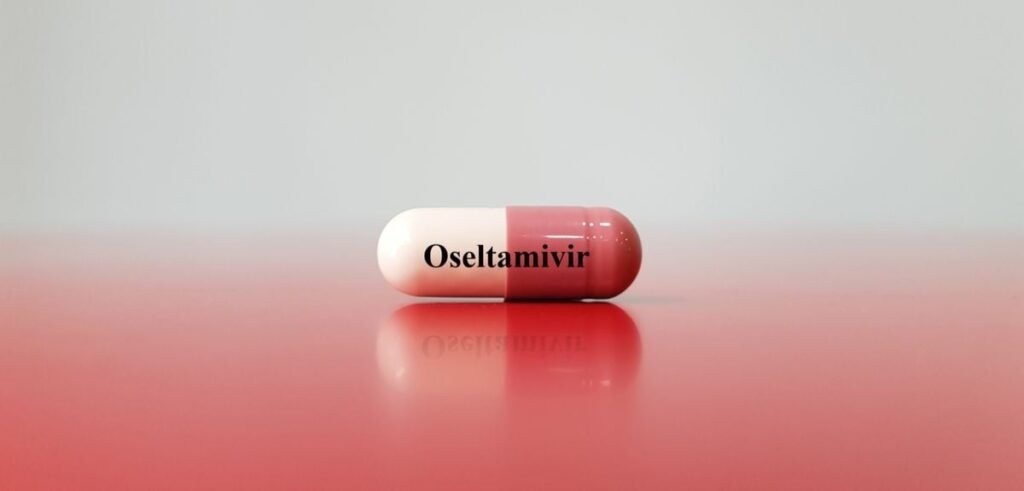
The influenza vaccine in Sabah is widely recommended as a safe and effective way to reduce the risk of complications from the virus. At U.n.i Klinik Sandakan, our Influenza flu shots are administered by certified medical professionals using approved vaccine formulations tailored to current circulating strains.
Getting an influenza vaccine in Sabah isn’t just about avoiding the flu; it’s about protecting yourself and others from serious, sometimes life-threatening complications. While many assume the flu is just a stronger cold, it can lead to pneumonia, hospitalisation, or worsen chronic illnesses like asthma, diabetes, and heart disease.

Every year, global health authorities like the WHO track influenza virus trends to predict which strains are most likely to spread. Vaccines, like the quadrivalent Vaxigrip Tetra commonly used in Malaysia, are then formulated to target four of the most likely strains: two A types and two B types.

Once you receive your influenza shot in Sabah, your immune system kicks in. It takes about two weeks for your body to create enough antibodies to fight the virus. These antibodies stay in your system throughout the flu season, helping to reduce the chances of infection or serious illness.

Even if you catch the flu after vaccination, the symptoms tend to be milder and shorter. More importantly, vaccination lowers the risk of spreading the virus to high-risk individuals like children, the elderly, and people with chronic health conditions.

Since the flu virus mutates frequently, yearly vaccination is necessary. Your last flu shot won’t cover this year’s strains. That’s why most doctors, including our team at U.n.i Klinik Sandakan recommend getting your shot before the rainy or cooler months begin, when flu cases typically spike.
Flu vaccination is safe for most people, but some groups benefit more, while others may need to consult a doctor first.
The influenza vaccine is recommended for anyone who wants to reduce their risk of getting the flu, regardless of their health status or risk level. While it’s especially important for individuals with chronic conditions like asthma, diabetes, or heart disease – according to the Ministry of Health Malaysia – healthy adults and children can also benefit. Vaccination helps reduce overall transmission in the community and offers peace of mind knowing you’re protected against evolving influenza strains.
Some individuals should speak to a doctor before getting vaccinated, especially those who:
Still unsure if our vaccine is right for you? Our doctors can provide a medical evaluation to determine whether it’s safe for you to receive the influenza flu shot.
While flu circulates year-round in Malaysia, it peaks during monsoon seasons and periods of high travel. That’s why it’s best to get vaccinated before April or October, ahead of the surge.
Your body takes approximately two weeks after the influenza shot for antibodies to fully develop and offer protection. This means timing is crucial — especially if you’re planning ahead for travel, work, or exposure to high-risk environments. Even if you’ve missed the “ideal” window, getting vaccinated later still provides valuable protection, particularly for those with underlying health conditions or frequent exposure to others.
At U.n.i Klinik Sandakan, our influenza vaccines are available all year, making it easy to stay protected whenever you’re ready.
For individuals who have recently travelled to high-risk countries or had close contact with confirmed influenza-positive patients, antiviral medication such as oseltamivir (Tamiflu) may be prescribed as a preventive measure. This approach helps reduce the risk of developing symptoms after exposure.
Timing is critical — the medication is most effective when taken within 48 hours of exposure. It is not a substitute for vaccination but can be a valuable short-term prevention strategy, especially for those at high risk of complications.
Speak to a doctor at U.n.i Klinik Sandakan to see if oseltamivir is right for your situation. Our team is ready to advise and provide access to appropriate treatment options.
The recommended vaccination schedule varies by age group and whether the individual has received the vaccine before:
Age Group | Vaccination History | Recommended Frequency |
6 Months – 8 Years | First-time vaccination | 2 doses, 4 weeks apart |
| 9 Years and Older | Any vaccination history | Once every year |
All Age Groups | After initial doses | Every six months |
Getting vaccinated on schedule helps maintain strong immunity and ensures protection against the most current strains of the influenza virus.
Flu vaccines are generally safe, but like any medical treatment, some people may experience mild side effects. These reactions are usually short-lived and resolve on their own within a few days.

It’s common to feel a bit of pain, redness, or swelling where the shot was given. This usually appears within a few hours and fades within 1–2 days. Applying a cool compress and moving your arm can help ease the discomfort.

Some people might feel tired or develop a low-grade fever after the shot. This is your body’s immune system reacting and building protection. These symptoms typically last less than 48 hours and don’t require treatment unless they worsen.

Reducing excess body weight lowers pressure on knees, hips, and lower back. For more information, visit our weight management program in Sandakan designed for patients with joint or metabolic conditions.
Getting your flu vaccine in Malaysia has never been more convenient or essential, and knowing where to get the influenza vaccine in Sabah can be the first step in protecting yourself and your loved ones.
Most side effects begin within 6 to 12 hours after the shot and are gone by day two. If symptoms persist longer than 72 hours or you feel unwell in other ways, it’s best to consult a doctor.
While vaccination remains the most effective way to protect against influenza, there are situations where additional steps are necessary, especially after known exposure or when symptoms start appearing.
At U.n.i Klinik Sandakan, we provide comprehensive flu care beyond the jab:

Get tested on the spot with our fast diagnostic kit that delivers results in just 5 minutes. This helps identify whether your flu-like symptoms are caused by the influenza virus and allows timely treatment decisions.

For patients who test positive or have had recent exposure our doctors may prescribe oseltamivir (Tamiflu). This antiviral medication can be used as treatment or preventive therapy, especially for those at higher risk of complications.
Certified medical professionals with experience in vaccination procedures
Safe and sterile environment using evidence-based methods
Personalised consultations to assess your conditions and recommend the best approach
A reputation built on trust, affordability, and effective results
Unlike countries with four seasons, Malaysia experiences year-round flu activity, with spikes typically seen during monsoon seasons and periods of increased travel. It's best to get vaccinated before the flu season intensifies, usually before April and October.
No, the influenza vaccine does not provide lifetime protection. The flu virus mutates each year, so the vaccine is updated annually to match the most common circulating strains.
Yes. Because the flu virus changes frequently and immunity from the vaccine decreases over time, it’s recommended to get a flu shot once a year for optimal protection.
The flu shot reduces your risk, but doesn’t guarantee 100% protection. If you do catch the flu after vaccination, the symptoms are usually less severe, and the risk of complications is significantly lower.
Protection typically lasts 6 to 12 months. That’s why it’s important to get the vaccine annually, ideally before flu activity rises in Malaysia.
Don’t wait for flu season to catch up with you. Whether you’re looking for personal protection or safeguarding your loved ones, getting an influenza vaccine in Sabah is one of the safest, quickest, and most effective ways to stay healthy year-round.
At U.n.i Klinik Sandakan, we offer walk-in-friendly flu shots with minimal waiting time and administered by trusted, licensed professionals. Our clinic is open daily, and our team is here to guide you on when, how, and if vaccination is right for you.
Book your appointment or visit our clinic today to get started on a healthier tomorrow.